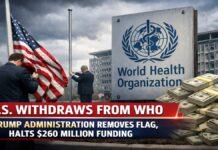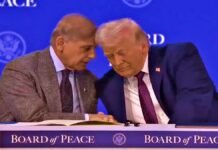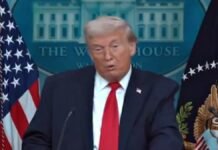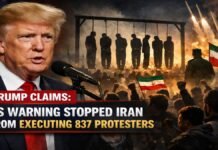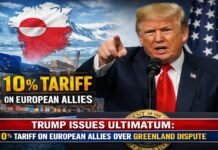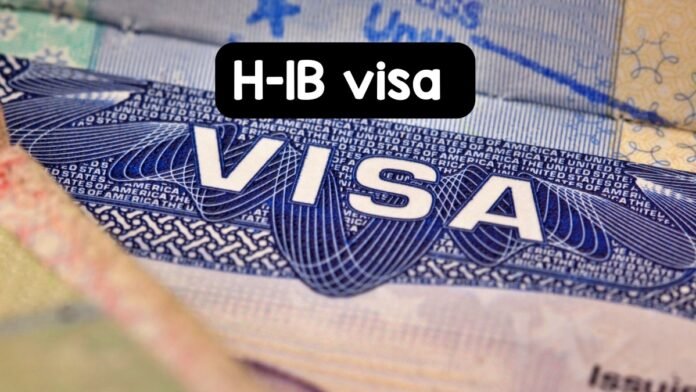
Key Points
- USCIS confirms existing visa holders exempt from Trump’s $100,000 H-1B “change of status” fee introduced September 20, 2025
- F-1 student visa and L-1 professional visa holders residing in US can change to H-1B without paying the fee
- Current H-1B visa holders can renew, extend, or travel internationally without fee obligation
- Fee applies only to new H-1B visa applications submitted on or after 12:01 AM ET, September 21, 2025
- Previously approved petitions retain exemption even if underlying visas have expired
- Clarification provides relief to thousands of foreign workers and students already in United States
- Updated USCIS guidelines issued Monday, October 20, 2025, resolve weeks of uncertainty
Washington D.C.: The United States Citizenship and Immigration Services (USCIS) has provided crucial clarity regarding President Donald Trump’s controversial $100,000 H-1B visa fee, confirming that thousands of individuals already residing in the United States on valid visas will not be subject to the charge. The updated guidelines, released on Monday, October 20, 2025, resolve weeks of uncertainty that had left foreign workers and students anxious about their immigration status and financial obligations.
The $100,000 Fee Announcement
President Trump introduced the unprecedented $100,000 fee through a presidential proclamation issued on September 20, 2025, as part of his administration’s continued focus on reshaping America’s immigration system. The proclamation specified that anyone applying for an H-1B visa on or after 12:01 AM Eastern Time on September 21, 2025, would be required to pay the substantial charge.
The H-1B visa program allows US employers to temporarily employ foreign workers in specialty occupations requiring theoretical or technical expertise. The program has long been utilized by technology companies, healthcare providers, universities, and other sectors facing skilled labor shortages. The massive fee increase represented a dramatic departure from previous H-1B application costs, which typically ranged from several hundred to a few thousand dollars depending on employer size and petition type.
When initially announced, the proclamation triggered immediate concern and confusion among hundreds of thousands of foreign nationals already working or studying in the United States. The lack of specific details about how the fee would apply to people already in the country on different visa categories created widespread anxiety about potential financial burdens and immigration status complications.
Initial Uncertainty and Confusion
In the weeks following Trump’s September 20 announcement, early USCIS guidance hinted that current visa holders might be exempt from the fee, but the language remained ambiguous. Immigration attorneys reported being inundated with questions from clients seeking clarity about whether changing status from F-1 student visas or L-1 intracompany transfer visas to H-1B status would trigger the $100,000 obligation.
The uncertainty particularly affected international students on F-1 visas who had secured employment offers and planned to transition to H-1B status through their employers. Many faced difficult decisions about whether to proceed with applications or consider alternative paths, including potentially leaving the United States.
Similarly, L-1 visa holders working for multinational corporations who intended to convert to H-1B status—a common practice as workers establish longer-term career plans in the US—were left in limbo regarding their financial exposure.
Clear Exemptions Confirmed
The Monday guidance provides explicit confirmation that resolves the confusion. In a section titled “Who Is Subject To The $100,000 Fee,” USCIS unequivocally states that the proclamation “does not apply to any previously issued and currently valid H-1B visas, or any petitions submitted prior to 12:01 am ET on September 21, 2025.”
This language establishes three critical exemption categories:
First, individuals who already hold valid H-1B visas are completely exempt from the fee. This protects hundreds of thousands of foreign workers currently employed in the United States under H-1B status from facing unexpected financial obligations when renewing or extending their authorization.
Second, petitions submitted before the September 21 deadline are grandfathered in, meaning applicants whose employers filed paperwork before 12:01 AM ET on that date will not be subject to the fee regardless of when USCIS processes or approves their applications.
Third, the exemption extends to status changes, amendments, and extensions for individuals already physically present in the United States, provided certain conditions are met.
F-1 and L-1 Change of Status Protection
Addressing the specific concerns of F-1 student visa holders and L-1 professional visa holders, USCIS provided detailed clarification that directly exempts these populations from the fee when applying to change status to H-1B.
The agency stated: “The Proclamation does not apply to a petition filed at or after 12:01 a.m. ET on September 21, 2025, that is requesting an amendment, change of status, or extension of stay for an alien inside the United States where the alien is granted such amendment, change, or extension.”
This language is particularly significant because it explicitly covers “change of status” applications filed after the September 21 cutoff date. In practical terms, this means an international student currently in the US on an F-1 visa can apply to change to H-1B status today without paying the $100,000 fee, as long as they are physically present in the United States when applying.
Similarly, L-1 visa holders can transition to H-1B status without fee exposure. The L-1 visa category includes L-1A visas for managers and executives and L-1B visas for workers with specialized knowledge, all employed by multinational companies with US operations. Many L-1 holders eventually convert to H-1B status as they establish permanent residence pathways.
The exemption removes what would have been a prohibitive financial barrier for these workers and their employers. Most companies would be unwilling or unable to absorb a $100,000 fee for individual employees, potentially forcing talented workers to abandon US employment plans or return to their home countries.
H-1B Renewal and Extension Exemption
Current H-1B visa holders seeking to renew or extend their status also receive complete exemption from the fee under the updated guidelines. This provision ensures continuity for foreign workers whose initial H-1B authorization periods are expiring.
H-1B visas are initially granted for up to three years and can be extended for an additional three years, with certain exceptions allowing further extensions for individuals in the process of obtaining permanent residence. Without the exemption, hundreds of thousands of H-1B holders facing renewals in the coming years would have confronted enormous financial obligations.
The exemption for renewals and extensions maintains status quo affordability for employers sponsoring H-1B workers. Technology companies, healthcare systems, universities, and other sectors that depend on specialized foreign talent can continue managing their workforces without dramatic cost increases for existing employees.
International Travel Rights Preserved
USCIS also clarified that the fee does not restrict international travel rights for valid H-1B visa holders. The guidance explicitly states: “The proclamation does not prevent any holder of a current H-1B visa, or any alien beneficiary following petition approval, from travelling in and out of the United States.”
This clarification addresses concerns that traveling internationally might somehow trigger fee obligations or create complications upon reentry to the United States. H-1B workers frequently need to travel for business purposes, family obligations, or personal reasons. Uncertainty about whether such travel would affect their exemption status had created anxiety about accepting international assignments or visiting family abroad.
The preservation of travel rights ensures H-1B holders can maintain normal professional and personal mobility without jeopardizing their exemption from the fee.
Expired Visa Protection
In an additional layer of protection, the guidelines specify that even foreign nationals whose F-1, L-1, or H-1B visas have expired will not be required to pay the $100,000 fee under certain circumstances. Specifically, if they reapply based on an already approved petition or reenter the United States on a valid H-1B visa, the fee exemption continues to apply.
This provision addresses a common immigration scenario where visa stamps in passports expire while individuals remain in the United States on valid status. Under US immigration law, the visa stamp is required only for entry; individuals can remain in the US beyond visa expiration as long as their underlying status authorization remains valid.
When such individuals travel internationally and need to obtain new visa stamps at US consulates abroad, or when they apply for new visas based on previously approved petitions, they will not face the $100,000 fee. This protection prevents retroactive application of the fee to situations predating the proclamation.
Who Does Pay the Fee?
With extensive exemptions clarified, the question remains: who actually must pay the $100,000 fee? The answer is relatively narrow: foreign nationals applying for new H-1B visas from outside the United States on or after September 21, 2025, without previously approved petitions.
This primarily affects:
- Foreign workers outside the US whose employers petition for H-1B status for the first time after September 21, 2025
- Individuals selected in the annual H-1B lottery for fiscal year 2026 and beyond (assuming the lottery system continues)
- Workers seeking H-1B visas at US consulates abroad after the cutoff date
The financial burden of the fee will likely fall on employers rather than individual workers in most cases, as companies typically cover visa-related costs as part of recruitment and employment packages. However, the enormous fee amount may cause some employers to reconsider whether to pursue H-1B sponsorship, potentially reducing opportunities for foreign workers.
Industry and Advocacy Reactions
The USCIS clarification has been welcomed by immigration attorneys, business groups, and advocacy organizations that represent foreign workers and international students. While many continue to criticize the $100,000 fee as excessive and potentially damaging to US economic competitiveness, the exemptions for current visa holders prevent immediate disruption for hundreds of thousands of people.
Technology industry associations, which employ large numbers of H-1B workers, have expressed relief that current employees will not face the fee for renewals and extensions. However, they continue to voice concerns about the fee’s impact on future hiring and America’s ability to attract global talent.
University administrators and international student organizations have particularly welcomed the F-1 change-of-status exemption. International students represent a significant talent pipeline, with many graduates transitioning to H-1B status and contributing to the US economy and innovation ecosystem. The exemption ensures this pathway remains viable without prohibitive costs.
Immigration attorneys note that while the clarification resolves immediate questions, broader policy uncertainty continues to affect long-term planning for both foreign nationals and employers. The administration’s evolving immigration policies require continuous monitoring and adaptation.
Political Context
The $100,000 H-1B fee represents part of President Trump’s broader immigration policy agenda focused on prioritizing American workers and restricting certain forms of legal immigration alongside illegal immigration enforcement. The administration argues that high fees for work visas ensure only the most valuable positions are filled by foreign workers rather than potentially displacing Americans.
Critics counter that the fee is arbitrary, economically counterproductive, and will ultimately harm American competitiveness by making it harder for companies to access specialized talent unavailable in the domestic labor market. The debate reflects longstanding tensions over immigration policy balancing economic needs, labor market protection, and national identity considerations.
The specific exemptions now clarified suggest the administration sought to avoid immediate disruption for people already embedded in the US system while establishing new barriers for future entries. This approach attempts to balance restrictionist immigration goals with practical realities of workforce continuity.
Practical Implications Going Forward
For foreign nationals currently in the United States on F-1, L-1, or other visa categories, the clarification provides certainty that changing to H-1B status remains financially viable. Employers can proceed with change-of-status petitions without budgeting for the enormous fee, maintaining normal talent management practices.
Current H-1B holders can plan renewals and extensions with confidence that costs will remain at historical levels rather than escalating dramatically. This certainty supports career planning, family decisions, and long-term commitment to US-based employment.
However, the $100,000 fee’s application to new H-1B applicants from outside the US will likely reshape future hiring practices. Companies may reduce international recruiting, prioritize hiring foreign workers already in the US on other visa categories eligible for change of status, or explore alternative visa categories where feasible.
The clarification ultimately represents a middle-ground outcome—protecting existing visa holders while establishing new barriers for future applicants. As US immigration policy continues evolving, foreign workers, students, and employers must remain vigilant about regulatory changes affecting their situations.


































